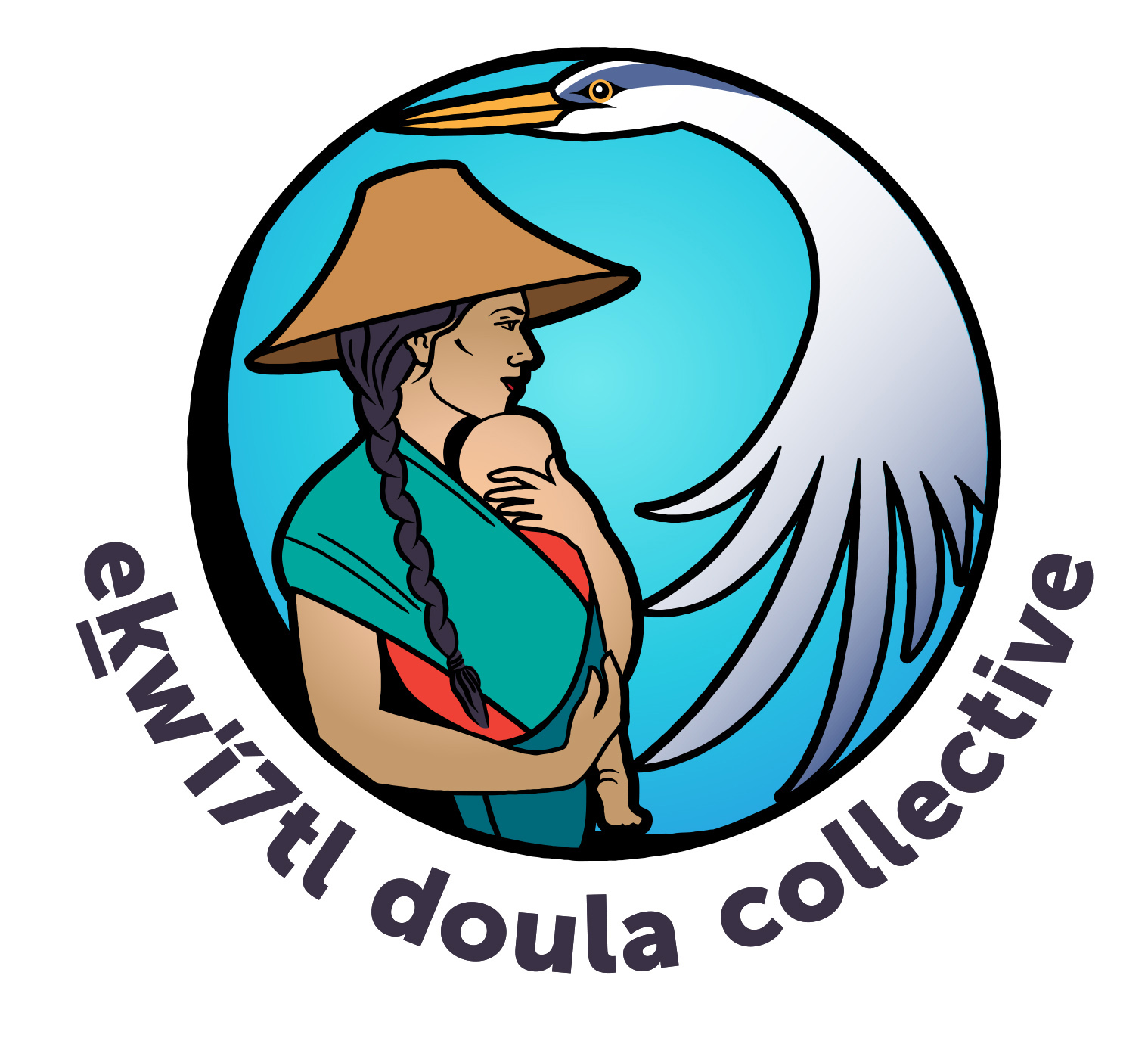We have developed a model of prenatal education specifically for Indigenous people, by Indigenous people, and grounded in Indigenous ways of knowing and decolonizing practices of birth reclamation and body sovereignty. It is our goal to make culturally-safe, culturally-relevant prenatal education available at no-cost to Indigenous families; thereby lowering barriers and improving accessibility. Our curriculum is designed to be inclusive of all gender identities: we aim to support Indigenous women, men, Two-Spirit and gender diverse individuals to reclaim their sacred roles in the spectrum of the perinatal period, and to empower all members of our community to learn practical skills and knowledge to welcome new babies from a place of wellness and empowerment.
Stay tuned for more information on future course offerings.
Our prenatal course was developed by ekw’í7tl members in 2020, drawing on our lived experiences, professional practices as birth workers, and Indigenous knowledge.
This is a course of unlearning as much as it is about learning. The goal of this prenatal course is to decolonize birth, and deconstruct mainstream myths and stereotypes about childbirth while creating space to reclaim Indigenous birth practices. We contextualize current maternity care practices within the ongoing, intersectional realities of violence against Indigenous women and Two-Spirit people; racism in health care; and newborn apprehension. In this course, we promote rights of Indigenous persons’ to bodily autonomy; and to reclaim birth as an ancient ceremony gifted to us by our ancestors.
Our course offers:
- Unlearning
- Challenging stereotypes, myths and unrealistic expectations about pregnancy, childbirth, postpartum and Indigenous parenthood
- Disrupting unbalanced power dynamics in our relationships with health care providers through practicing assertiveness in communication and health care decision-making
- Space for letting go of intergenerational pain and trauma that will not serve the childbirth process or the parenting journey
- Challenging gender stereotypes and assumptions
- Remembering
- Exploring traditional roles in communities (mothers, fathers, aunties, grandparents, midwives)
- Sharing traditional teachings related to childbearing, such as: matriarchal family lines; coming-of-age ceremonies; traditional marriages; traditional family and community roles; moon-time (menstrual) practices; birthing ceremonies; and baby honouring ceremonies
- Support for families to (re)build community and learn from one another
- Empowering
- Reclaiming Indigenous birth teachings and practices
- Celebrating childbirth as a natural and spiritual life event
- Celebrating Indigenous strength and resiliency
- Practicing skills in self-compassion, relaxation and self-advocacy
- Celebrating all gender identities and gender expressions



